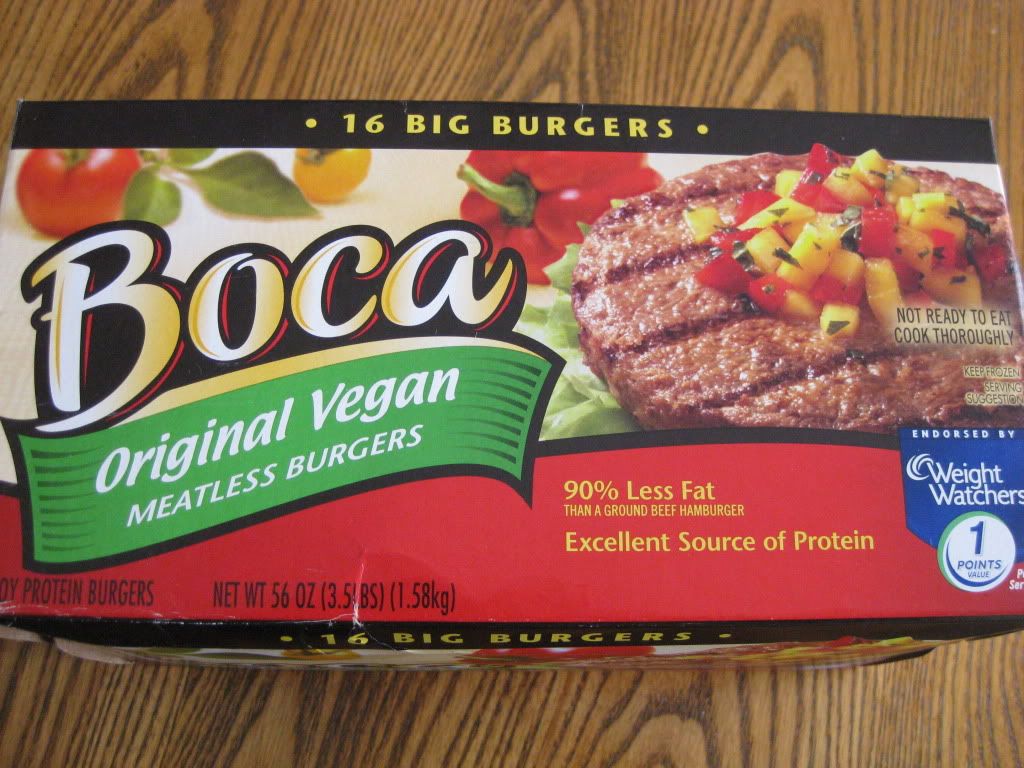
Start your day with a bowl of Kashi GOLEAN cereal. Twenty percent of your daily protein requirement. Top with 1/2 c. of soy milk.
Starbuck's break. Grande Vanilla Soy Latte.
Lunch on a Boca Burger with the works. Steal a few fries from your friend's plate.
Grab a Luna Bar to fuel before your workout.
Dinner? Comfort food, millenium style. Nuke some soy Chik'n Nuggets, barbecued ribs, or chili.
Dessert? A bowl of soy ice cream.
A healthy day? It's not like you're eating a quarter pounder or Haagen Dazs. People in Japan and China eat lots of soy. Incidences of breast cancer and other western diseases are lower there, right?
Well, yes. And no.
See, the traditional Asian diet includes small amounts of fermented soy from sources like miso, tempeh, soy sauce. More infrequent servings of tofu or edamame, those fuzzy green pods you snack on at the sushi bar. Not the ubiquitous amounts of processed soy that has made its way into our food supply.
Soy protein isolates, TVP or texturized vegetable protein, and soy derivatives are present in over sixty percent of the processed foods found in the typical grocery cart.
Soy is big business. Between 1996 and 2006, soy has gone from a $300 million to $ 4 billion industry. Our goverment, through the Farm Bill, subsidizes soy crops, making soy a cheap source of protein, oils, and even animal feed. The company that produces Boca Burgers is now owned by Kraft Foods. Or more specifically, the Oscar Meyer division. As in B-o-l-o-g-n-a. The proud inventor of the nutritional nightmare, Lunchables.
The commodity and food corporation PR machine relied on pseudo-science to convince us soy isaflavones and phytoestrogens protect us against breast cancer and other diseases.
Is soy a safe and health-promoting substitute for meat and dairy? I'll give you the scoop.
Just two glasses of soy milk a day can cause disruptions to the menstrual cycle.
The Israeli Health Ministry issued an advisory against infant soy formula and the use of soy products for children under 18. Australia and other countries have followed suit.
Soy's disruption of hormones, specifically estrogen, testosterone, and thyroid hormones, is particularly dangerous during infancy and puberty. Because of infant's low body weight and other factors, soy formula provides the infant with as the effect of estrogen in five birth control pills. The tremendous increase of soy in the typical American diet has been suspected of lowering the age of puberty due to hormone disruption in both girls and boys.
According to OncoLink, the website of the University of Pennsylvania's Abramson Cancer Center, breast cancer survivors should limit soy intake to three or fewer servings daily. The concentrated levels of isolflavones in processed soy, protein powder, and supplements may fuel the growth of breast cancer cells and may interfere with the effectiveness of drugs like Tamoxifen.
In addition to isoflavones, processed soy contains a number of other potentially harmful substances.
Glyphosate: Or Roundup. Toxic weed killer. Over ninety percent of non-organic soy crops in the US are genetically modified to withstand high amounts of herbicides and pesticides. Animal studies and statistics have linked GMO crops to an increase in a number of health conditions from dietary problems to autism, infertility, cancer, autoimmune diseases, and a number of other health problems.
Phytic Acid: Interferes with absorption of calcium, magnesium, copper, and zinc.
Trypsin Inhibitors: May cause problems with protein digestion and pancreatic issues.
Goitregens: Interferes with thyroid hormones, possibly linked to hypothyroidism and thyroid cancer. In infants, may be associated with autoimmune thyroid disease.
Hemagglutinin: May cause changes in red blood cells, which can interfere with oxygen absorption.
Synthetic Vitamin D: Soy milk is generally forified with the toxic Vitamin D2. The synthetic Vitamin D increases the required amount of Vitamin D needed to promote health. Many Americans are deficient in Vitamin D due to decreased exposure to the sun, in part due to increase use of sunscreen.
B 12: The B12 present in soy products is not absorbed by the body, increasing the required amount required for optimal health. Many vegans with soy-based diet are B12 deficient.
Protein Denaturing: High temperatures present in soy processing create toxins such as lysinoalinine and nitrosamines. Nitrosamines or nitrites are a highly carcinogenic compound found in processed meats.
MSG: Commonly associated with Chinese food, MSG is a neurotoxin linked with many medical problems in those who with a sensitivity. MSG is a byproduct of soy processing. Additional MSG is added to processed faux meat products to mask soy's taste.
Aluminum and Manganese: High levels of aluminum in soy left over from the processing are toxic to kidneys and the nervous system. Manganese is associated with metabolic problems in infants.
The bottom line? Avoid soy in its processed state. The further foods appear from their natural state, the more processed they are. Fortifying processed food to return some of the nutrients found in the natural state does not positively impact health.
Filll your plate with a variety of vegetables and fruits, lean proteins. If you're a vegetarian, choose protein sources like legumes, seeds, eggs, and dairy.
A health coach can help you develop and follow the optimal diet for your body type and needs. Contact me at info@bethckramer.com.
No comments:
Post a Comment